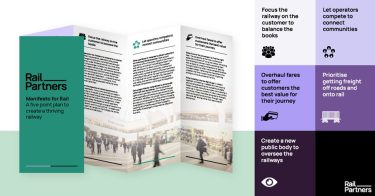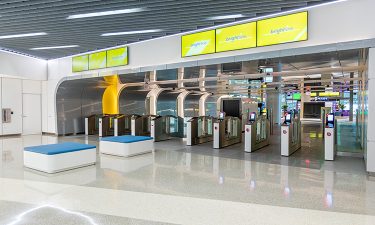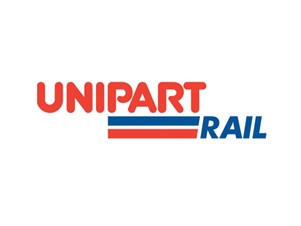Rail Partners has launched its ‘Manifesto for Rail’, a five point plan for politicians to create a thriving railway for Britain. The document sets out a ‘best of both worlds’ approach to rail reform – giving private train operating companies the ability to respond to passenger and freight customer needs, as well as ensuring a single point of public accountability for the railway’s performance.
The launch comes ahead of the 2024 George Bradshaw Address, which, in an election year special format, will see both main parties set out their respective plans for the railway.
Recognising that the railway is not currently performing as it should be, the Manifesto encourages politicians to take decisions that will attract passengers back to rail, restoring hundreds of millions of pounds in lost revenue after Covid. Doing so will allow the railway to fulfill its functions as an enabler of economic growth, with significant social benefits to communities and the environment.
The five point plan is underpinned by research in Rail Partners’ Track to Growth report, which shows how competition between train companies, both here and in Europe contributes to growing passenger numbers, improved services and lower cost to the taxpayer. The evidence shows that allowing operators to use their commercial expertise to respond to the needs of customers is the best way to grow the railway and give the best value for taxpayers.
The five elements of the plan outlined in the manifesto are:
Focus the railway on the customer to balance the books. Give operators the freedom to use their commercial expertise, and respond to the customer, through transforming the contractual model post-Covid. A new model should take commercial decisions out of Whitehall and put them back with rail operators to help grow the railway – meaning more passengers, more services, increased revenue and lower taxpayer support.
Let operators compete to connect communities. Allow operators to compete to attract customers on more long distance routes. This includes open access operations which run on gaps in the existing timetable at no direct cost to the taxpayer and often on underserved routes; encouraging intercity competition with road and air that helps lower fares and encourage innovation.
Overhaul fares to offer customers the best value for their journey. Make it easy for passengers to find the right fare by creating a system that is easy to understand and is fit for purpose in a digital age. A modern approach to ticketing is needed with new ways to pay including expanding the availability of digital tickets to cover more journey types and investing in more tap-in-tap-out systems in urban areas across the railway.
Prioritise getting freight off roads and onto rail. Harness rail freight for less congested roads and cleaner air by making rail freight the most attractive option for moving goods. Invest in infrastructure and create financial incentives for freight customers to choose the most environmentally friendly mode of freight transport – rail.
Create a new body to oversee the railways. Legislate to create a new body that is accountable to the public – letting railway leaders get on with the job of running the railway and working towards the best outcome for customers. A new body would provide a single point of accountability to make sure passengers and freight customers are at the forefront of decisions.
Andy Bagnall, Chief Executive of Rail Partners, said:
‘Our Manifesto for Rail is a five point plan, backed by train companies, to get the railways delivering their full potential for Britain again. It gives whoever forms the next government a clear set of priorities to deliver reform and put the railways back on track to growth. The public is not that interested in how our railways are structured or organised, they just want to have trains that run on time and fares that offer them the best value for their journey.
‘There doesn’t have to be a binary choice between a railway monopoly in public hands, and one that delivers competition and innovation by harnessing the commercial expertise of private sector operators. We need the ‘best of both worlds’, which means focusing the system outwards on passengers and freight customers by empowering operators to meet their needs, and creating a single accountable body so the public knows who is in charge.’



